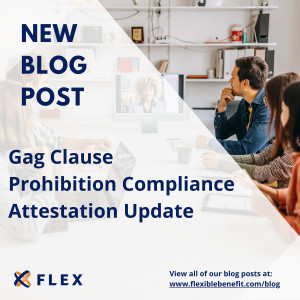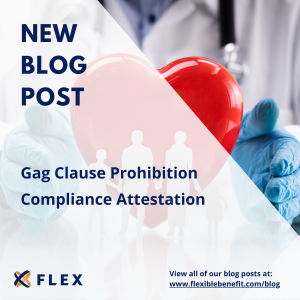health insurance
There is a new annual compliance requirement that applies to “plans” and “issuers.” For the avoidance of doubt, the term plan means employer and the term issuer means health insurance carrier.
Each year, employers and health insurance carriers must submit a gag clause prohibition compliance attestation. This will be due by December 31st of each year with the first attestation due by December 31, 2023. So, what does this really mean?
The Consolidated Appropriations Act of 2021 included a provision that prohibits group health plans and health insurance carriers from entering into agreements with a health care provider, network or association of providers, third-party administrator (TPA), or other service provider offering access to a network of providers that would directly or indirectly restrict a plan or issuer from:
Last year, the State of Illinois passed a law called the Consumer Coverage Disclosure Act (CCDA). The CCDA requires a written disclosure to be provided by every employer who has employees in the State of Illinois and who also provides group health insurance coverage to those employees.
Grandmothered plans are the name commonly used for health insurance plans in the individual and small group markets that were issued after the Affordable Care Act (ACA) was signed into law (March 23, 2010) and before the so-called full implementation date of the law (January 1, 2014).
The Employee Retirement Income Security Act of 1974 (ERISA) requires employers to provide a Summary Plan Description (SPD) to employees if they offer health, dental, vision, life, disability, or other benefits.
Last week, the Trump administration issued final rules which extend the maximum duration of short-term medical plans (STM plans). STM plans can now have an initial coverage period just shy of one year (364 days). Taking into account renewals, STM plans can have a maximum duration of up to 36 months.
Recently, we’ve been exploring the role of General Agents and addressing some of the common misconceptions that people often have about them. There’s no question that working with a General Agent (GA) can be extremely beneficial for insurance brokers. However, not all GAs are created equal.
There are different types of arrangements out there and not every organization that represents itself as a GA meets the necessary criteria. When looking for a GA to work with, it’s important to look for a “true” GA.
Did you know that a General Agent helps brokers make more money and doesn't cost a penny to the broker? Even after 30 years in the business, we sometimes get confused looks when we tell people that we’re a General Agent. As it turns out, not everyone fully understands the wide range of services provided by General Agents or the value that they bring to insurance brokers. For brokers who don’t currently work with one, there are often misconceptions about why General Agents exist, how they operate and how they get paid. Well, we’d like to take a minute to clear up any confusion.










